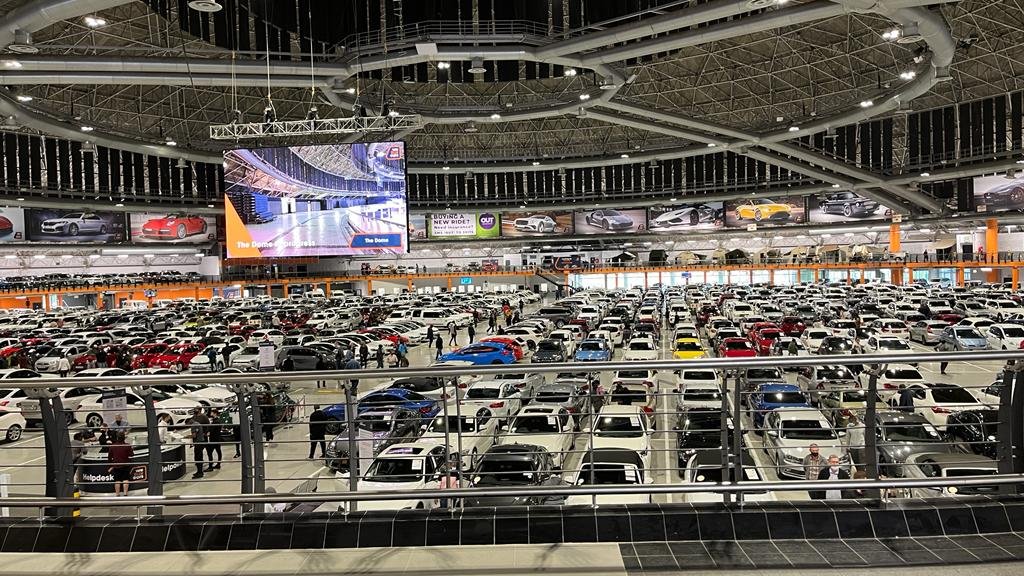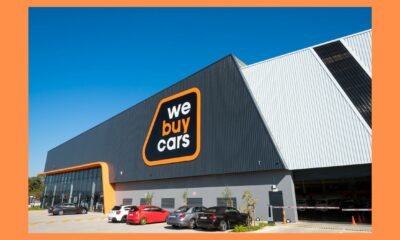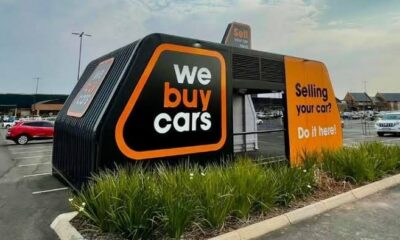Published
7 months agoon
By
zaghrah
For years, WeBuyCars and Weelee have dominated South Africa’s second-hand car market. But according to TransUnion’s Q1 2025 Mobility Insights Report, the game is changing and fast.
The culprit? A flood of budget-friendly Chinese cars hitting local showrooms and seducing price-conscious buyers who might have previously opted for a used car.
Buyers are increasingly asking themselves: Why buy a used German sedan when you can drive off with a brand-new Chinese SUV with a warranty for the same price?
South Africa saw an unprecedented 20.6% year-over-year jump in passenger car sales in the first quarter of 2025, the highest in nearly ten years. Over 102,000 new vehicles were sold, with monthly averages of 34,000.
This growth is being fuelled by a combination of factors: lower interest rates, improved wages, payouts from the new two-pot retirement system, and cooling inflation. But the biggest driver, according to the report, is the aggressive entry of Chinese and Indian brands into the local market.
Once seen as unknown quantities, brands like BAIC, JAC, Jetour, Foton, JAECOO, and OMODA are now household names for anyone browsing entry-level to mid-tier car options.
TransUnion reports a massive 64.6% growth in new Chinese car sales in Q1 2025. In just four years, their share of the market rose from 9% to 12%. Meanwhile, the old guard, traditional original equipment manufacturers (OEMs) — have seen their collective share plummet from 64% to 53%.
It’s not just Chinese makers winning, either. India’s Mahindra clocked a stunning 71.8% surge in sales, while Suzuki posted a solid 19.8% year-over-year gain.
These vehicles combine affordability with innovation, offering flashy infotainment systems, SUV bodies, and rising aftersales support. That’s a strong appeal for South African households facing tightening budgets.
WeBuyCars CEO Faan van der Walt acknowledged the shift but says the impact on the used sector has been limited for now.
“The affordable Asian vehicles have definitely impacted the market,” he told BusinessTech, “but primarily on premium brand new car sales. We’ve not seen a noticeable drop in our higher-value vehicle sales.”
Van der Walt added that the company mostly deals in lower-value, older vehicles, which may not yet feel the squeeze of this trend. But he’s aware of what’s coming and cautiously optimistic.
“These new entrants are expanding the pool of vehicles in South Africa. Eventually, they’ll filter into the used car market, which we view as a long-term positive.”
Still, the current reality remains: used car growth has stalled, down to 0.9% in Q1 2025, a steep drop from 4.7% in Q4 2024.
Weelee had not commented on the report by the time of publication, but the implications are clear for all second-hand dealers.
This isn’t just about consumer choices. South Africa’s automotive economy is heavily reliant on imports — especially now, from China and India. That’s reshaping the competitive landscape, raising questions about local manufacturing viability, and even policy implications tied to BRICS trade dynamics.
SUVs dominate, and Chinese automakers have mastered the formula. They’re also deploying dealer networks and aftersales service at pace, solving one of the few objections South Africans used to have about buying Chinese.
As these brands become entrenched, used car dealers will need to adapt, either by finding new value propositions or forming partnerships with newer brands to secure future stock.
The average South African buyer, once laser-focused on used German, American, or Japanese models, is now giving serious attention to sleek, gadget-loaded, affordable Chinese SUVs. This is less about brand loyalty and more about economic survival.
The used car market isn’t dead far from it. But it’s entering a new chapter, one where the traditional players can’t take dominance for granted.
In a few years, today’s OMODAs and Jetours will be tomorrow’s used car best-sellers, but only if dealers like WeBuyCars and Weelee can keep up with the shift.
{Source: BusinessTech}
Follow Joburg ETC on Facebook, Twitter , TikTok and Instagram
For more News in Johannesburg, visit joburgetc.com


The Unstoppable Engine: How WeBuyCars Became a R26 Billion Second-Hand Juggernaut


WeBuyCars Navigates Market Headwinds, Posts 15% Earnings Growth Amid Tough Competition


WeBuyCars Share Price Drops 14% on JSE Despite Profit Growth


Gauteng Used Car Hunter’s Map: Where to Find the Best Deals


The R10k Mirage: A Realistic Look at the Cheapest Cars on the Market


The Cheap Car Conundrum: A Jozi Guide to Cape Town’s Market















